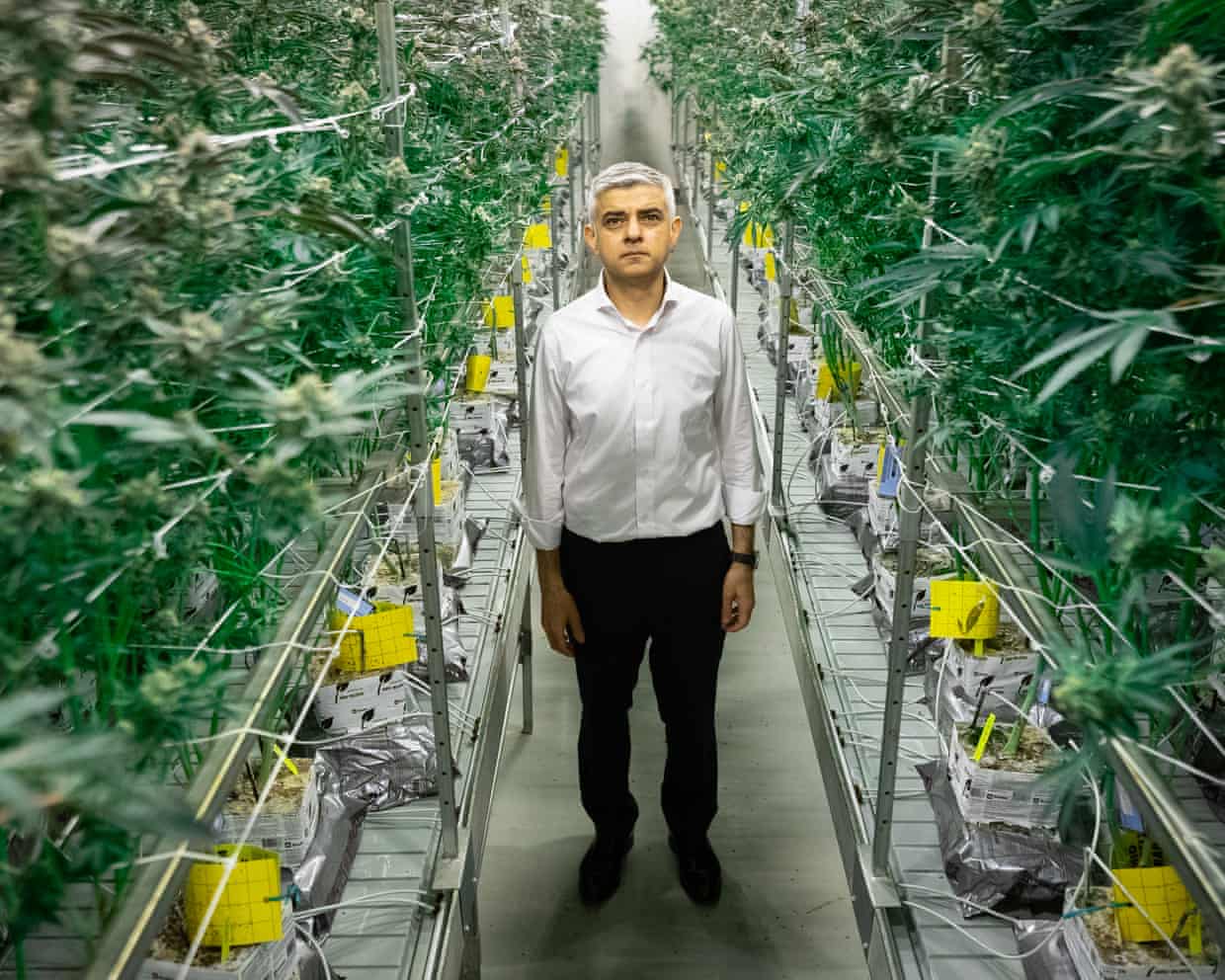Sadiq Khan has expressed support for the movement towards the partial decriminalization of cannabis possession, following a comprehensive study indicating that the current policing methods may inflict more damage on society than the use of the drug itself.
The research highlighted that stop-and-search practices disproportionately impact Black communities.
“I have consistently emphasized the necessity for innovative approaches to mitigate the significant harms tied to drug-related offenses in our neighborhoods,” the mayor of London stated on Wednesday.
He pointed out that according to the report, the existing penalties for individuals found with natural cannabis cannot be justified when considering its relative harm and the experiences people have had with the justice system.
The independent London Drugs Commission, which produced this report a year after its establishment by Khan, clarified that it is not advocating for the complete legalization of cannabis. Instead, their main recommendation is that possessing small amounts of natural cannabis for personal use should no longer be a criminal offense.
The commission emphasized that law enforcement should still address the production and distribution of the drug. Synthetic cannabis, however, was explicitly excluded from their decriminalization proposals.
Led by former Justice Secretary Lord Falconer KC, the commissioners collaborated with academics from University College London to gather insights from over 200 experts across the globe.
Their findings indicated that classifying cannabis as a Class B substance under the Misuse of Drugs Act is “disproportionate to the potential harms when compared with other drugs regulated by the act.”
The researchers assessed that “the available sentencing choices, particularly for personal possession, are indefensible when weighed against the longer-term effects of engagement with the justice system, including stop-and-search practices and the repercussions of serving a criminal sentence.”
Moreover, they highlighted that policing efforts often concentrate on specific ethnic groups—especially the Black community—resulting in harmful and lasting effects on individuals, the broader society, and the relationship between police and communities.
While they noted potential immediate benefits from legalization, such as tax income and reduced criminalization, they warned that the “scope of harms, especially regarding public health and both personal and societal costs, may take longer to manifest and is not yet fully understood.”
The researchers advocated for greater attention to be directed towards assisting the minority of users who encounter complications, recognizing that cannabis can indeed be addictive. “Individuals experiencing negative effects from cannabis may represent a small percentage of users but still constitute a significant number requiring dependable medical and other forms of support.”
Furthermore, they criticized the current level of education regarding cannabis as insufficient, failing to “address the factors driving its use” and, particularly concerning younger demographics, being “led by providers lacking adequate credibility and understanding.”
Falconer remarked: “It’s evident that a fundamental overhaul is necessary. Legalization is not the solution. The justice system’s response should be aimed solely at dealers, not users… Additionally, there needs to be much more education regarding the risks associated with cannabis use.”
Khan asserted that the report’s recommendations must be heeded by authorities in both City Hall and Westminster.
In response, a Home Office spokesperson stated: “We will persist in collaborating with partners across health, policing, and broader public services to reduce drug use, guarantee that more individuals receive prompt treatment and support, and make our streets and communities safer. We have no plans to reclassify cannabis from a Class B substance under the Misuse of Drugs Act.”

